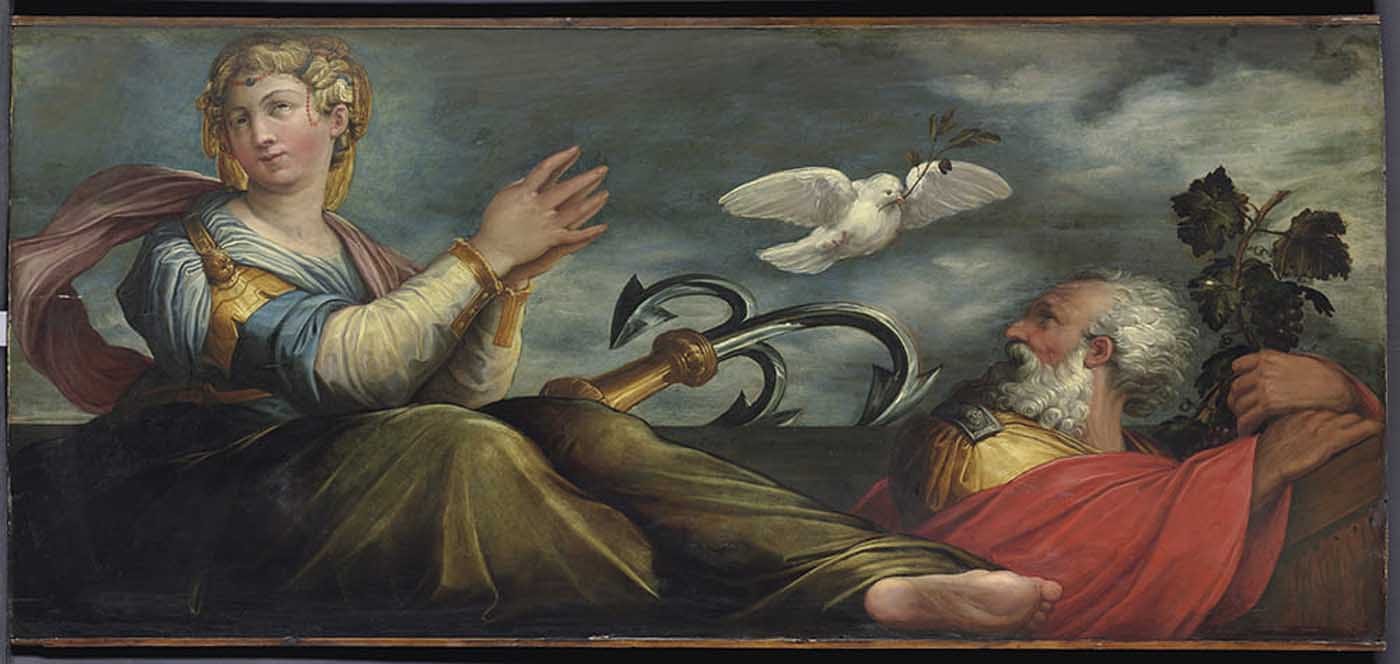Many thanks to Gary Gillespie for the opportunity to speak with his team of economists in the The Scottish Government today. Again, talking about the work which has gone into my plans for a book on the recovery from the Great Depression.
After talking about those plans twice this week, I am swithering over the direction to take.
My current plan is to emphasise the importance of collaborative effort - so that I write a book about heroic efforts, which has no hero.
The alternative might be to argue that the book does have a hero - hope as the personification of virtue, as captured in Vasari's ceiling panel, which is currently at the Galleria d'Accademia in Venice.
In the painting, hope comes with a grappling anchor - a nod to Venice's status as a great maritime power as well as the Christian "sure and stedfast anchor of the soul" of Hebrews 6:19.
This is hope as virtue, which for Thomas Aquinas relates to something good, realisable with difficulty and effort in future, but which is possible to attain. I want to argue that the nurture of this virtue was essential for the recovery from the Great Depression - demonstrating that both politics and economics at their best are inevitably moral arts.
Thinking of 2024 rather than the 1930s, perhaps Kamala Harris' campaign team might have usefully read Aquinas "hope does not regard that which is present and already possessed: in this respect, hope differs from joy which regards a present good". (Summa Theologiae, II:I, 40.1)


